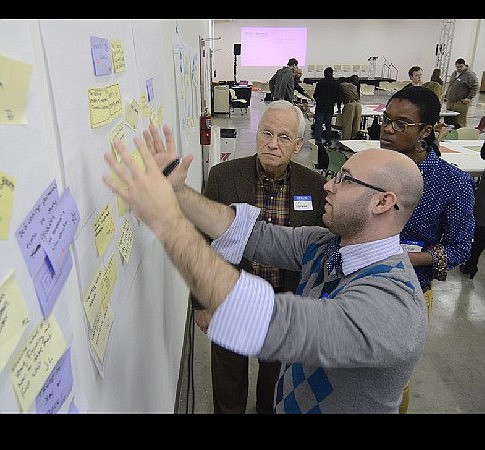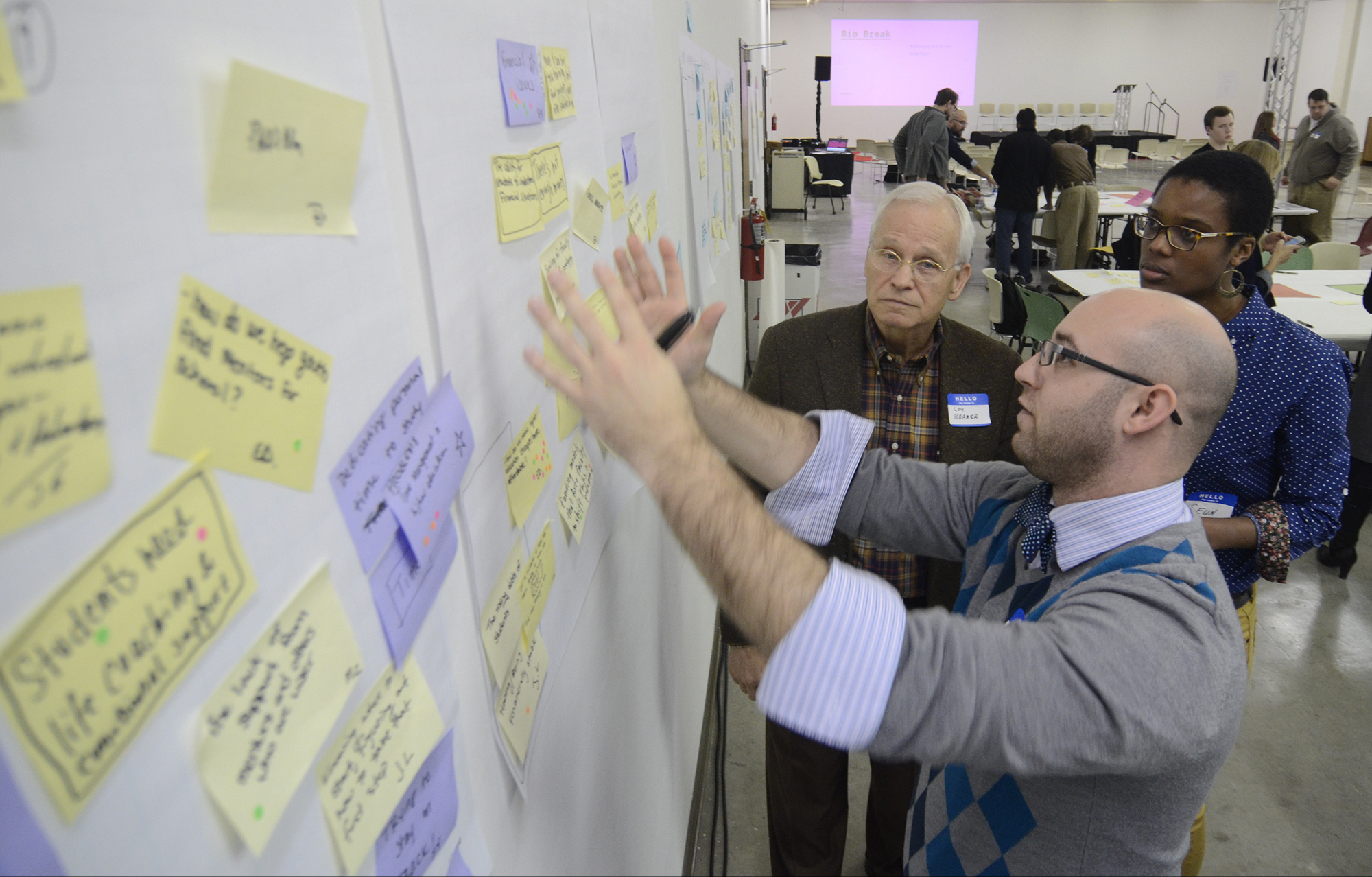MOZILLA GIGABIT COMMUNITY FUND GRANT RECIPIENTS* Viditor - $9,000* Hyperlocal Hyperaudio - $25,000* Adagio - $25,600Source: Mozilla Gigabit Community FundFOR MORE INFORMATIONVisit www.mozilla.org/en-US/gigabit/Source: Mozilla Gigabit Community Fund
Picture two Youtube videos. One of Chattanooga Mayor Andy Berke giving a speech, and one of former Chattanooga mayor Ron Littlefield giving a speech.
Now, as they speak, imagine a written transcript below each video that reflects every word.
Got it?
Now, imagine editing the two videos together into one video simply by highlighting and dragging pieces of text from the written transcripts.
That's Hyperaudio.
Through the Mozilla Gigabit Community Fund, the nonprofit is launching a new program in Chattanooga called Hyperaudio Hyperlocal. The goal is to use its unique video editing platform in education -- allowing kids to cultivate and create their own videos from other educational material.
"We've partnered with WTCI/PBS to get content from their archives, stuff about the last 10 to 20 years in Chattanooga," said Nate Hill, local coordinator and assistant director at the Chattanooga Public Library. "We'll get to unlock some video content and give kids the opportunity to learn through creating."
The program is one of three Chattanooga projects that received grant funding from the Mozilla Gigabit Community Fund for a 12-week pilot program, Mozilla announced Thursday. The fund aims to cultivate immediate, real-world applications for gigabit-per-second Internet speeds.
The technology nonprofit started the fund earlier this year with a $300,000 grant from the National Science Foundation, and is splitting that money between Kansas City and Chattanooga. Mozilla is offering grants between $5,000 and $30,000 to teams in both cities.
That projects must focus on either education or workforce development, and a total of eight projects have been funded -- five in Kansas City and three in Chattanooga. In Chattanooga, Adagio and Viditor each claimed a grant during the first round of funding.
Adagio is a cloud-based remote audio mixing application that's more efficient and less expensive than current audio mixing software.
"You can do collaborations across different cities with this technology," said founder Jonathan Susman. "There is major studio equipment out there available to do this kind of thing, but they are very expensive hardware-software combinations and you have to be right there at this work station. Or you can mix things on a device but you have to be on the same network. [Adagio] allows you to be anywhere."
Susman hopes to use the grant from Mozilla to create progressive learning curriculum for students -- like layering different instruments in a symphony so the student can learn each part.
And the third project, Viditor, will be a new online video editor that will debut in art and design classes at Baylor School and in the Chattanooga Public Library.
Hill said he's glad the library is involved in all three Mozilla-funded projects.
"It's a big deal that we have Mozilla investing in our community like this," he said. "The ideal behind the Mozilla Foundation and the ethic of open source meshes well with what libraries are about."
The first round of Mozilla's pilot programs will last 12 weeks, from April 28 to July 18. A second round of projects will be funded from July 7 to Sept. 26. New teams can apply for the second round of funding after May 12.
Contact staff writer Shelly Bradbury at 423-757-6525 or sbradbury@timesfreepress.com with tips and story ideas.

